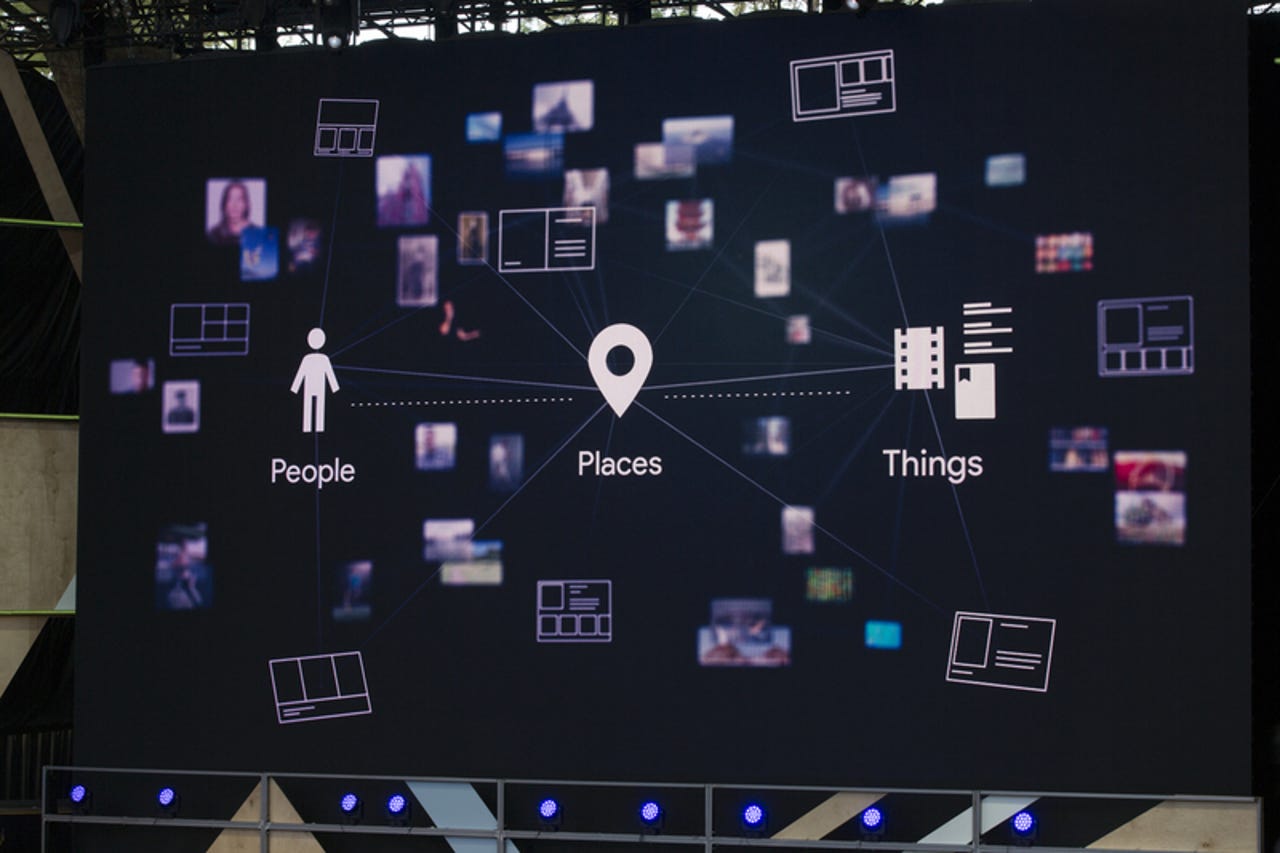Google's big bet: Machine learning, artificial intelligence will be its secret sauce, winning formula


Google I/O
Built-in search, artificial intelligence, machine learning and a knowledge graph connecting billions of entities is how Google plans to ultimately compete and win in many markets where it isn't first today.
It's easy to note the me-too items outlined at Google I/O. Android N has a few new features, but doesn't advance the ball that much. Mobile platforms have hit the service pack, incremental update mode. Google Home is Google's answer to Amazon's Echo. Google's Assistant, Duo and Allo are all catch-up efforts. Android Wear 2.0 is gunning for Apple's Watch OS. Virtual reality for Google is setting up for a Facebook showdown. Instant Apps were an interesting advance, but overall there wasn't a lot of wow developments at Google I/O's first day.
Google I/O: Custom TPU chip amplifies machine learning performance | Google I/O: New APIs help streamline workflows | CNET: Google's CEO sums up his AI vision: "Hi. How can I help?"
So the story is done right? Google is playing from behind and isn't advancing the ball much.
Not so fast.
The glue for all of these play-from-behind items is artificial intelligence, context, personalization and sheer computing power. "We're working hard at core use cases on mobile," said CEO Sundar Pichai during the Google I/O keynote. "We are pushing ourselves really hard so Google is staying a step ahead of our customers."
Machine learning was the common thread in Google's new products and presentation. In CNET's profile of Pichai it was noted:
It's as if Google is transferring its very essence from that sparse white homepage into every piece of tech you own (your phone, car, smartwatch) and online service you use. Unlike today's search box, this assistant will learn about you from your behavior. It will know you're a vegetarian, so won't recommend steakhouses for dinner. It will understand context: If you've just bought Golden State Warriors tickets, the next time you mention Curry, it will know you're talking about Steph and not Thai curry.
Google I/O: What's new with Android N
Pichai noted that staying ahead means being assistive and providing an ambient experience with Google. Google Home's secret sauce is really Google. Pichai is connecting machine learning tools to developers via its Cloud Platform as well as the open source community via TensorFlow.
"We can do things never could do before," said Pichai. "We believe we're at a seminal moment in next 10 years and want to take next step to be more assistive. We want to be there for our users. We want to help you get things done in the real world and understanding your context."
Google I/O 2016: Scenes from the developer conference
In other words, Apple can bring hardware and software integration to the party. Amazon can bring the e-commerce and convenience. And Microsoft can bring productivity. Google is bringing artificial intelligence more in line with HAL. Google started as a search engine, but if the company's vision plays out it'll be more like a person or ambient being.
Every product and service will have Google Assistant built in. Google's hope is that it'll be your AI friend. We'll see whether this approach can allow Google can close gaps with rivals. "The real test is whether humans can achieve a lot more with AI assisting them," said Pichai. "We look forward to building this future."